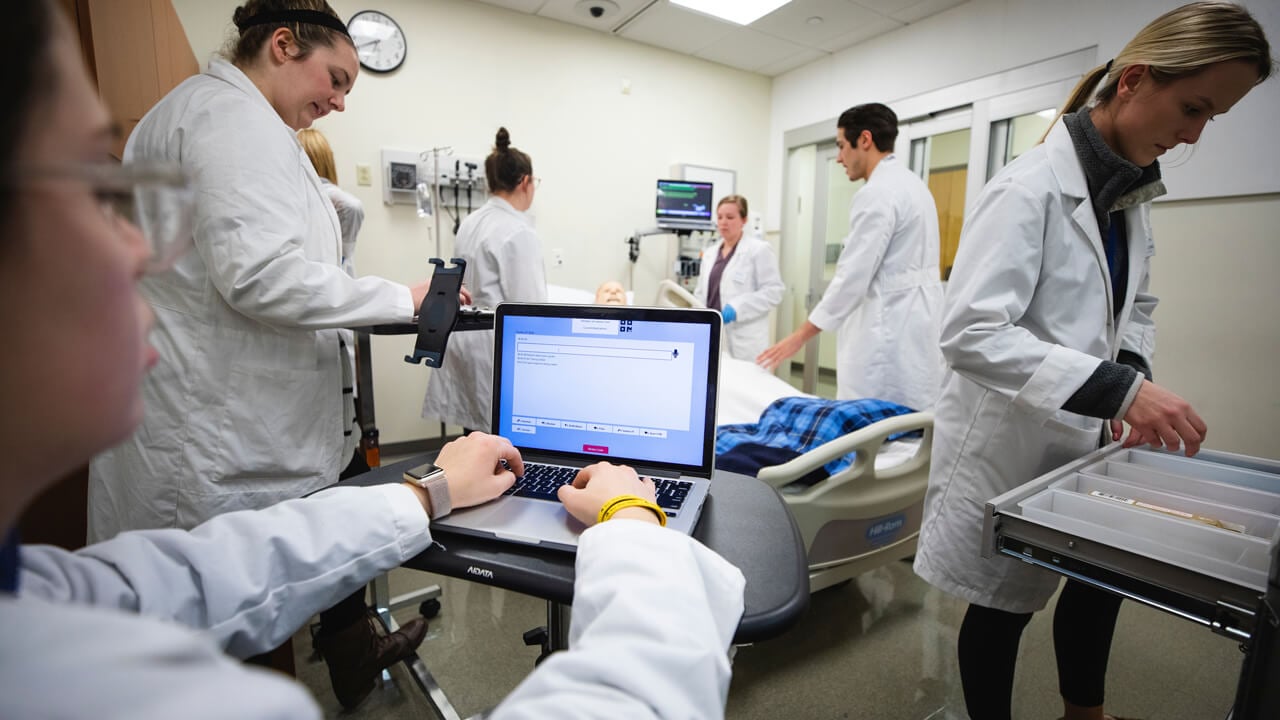
Online cybersecurity courses introduced for health care workers
May 16, 2021

May 16, 2021

Health care organizations are among the most vulnerable to cyberattacks because they collect and retain significant personal data, from medical records and Social Security numbers, to credit card, bank account and health insurance information. Security breaches are a major liability because they threaten patient privacy and safety as well as the ability of health care organizations to treat patients.
“Health care is one of the biggest segments of our economy and one of the nation’s 16 critical infrastructure sectors,” said Fred Scholl, associate teaching professor of cybersecurity. “It’s in our national interest to teach people the skills to protect it.”
The 1-credit online courses include CYB 610: Hands-on HIPAA Compliance Risk Management; CYB 611: Hands-on HIPAA Security Risk Analysis and Risk Management; and CYB 612: Enterprise Cybersecurity Risk Management in Health Care.
CYB 610 lays a foundation in HIPAA privacy, security and breach notification compliance standards, while CYB 611 covers how to run security risk assessments. In CYB 612, students organize and carry out an effective Enterprise Cybersecurity Risk Management (ECRM) program.
“It’s about putting it all together and learning to execute everything within an organization,” Scholl said.
The courses are open to Quinnipiac seniors who have some experience in a health care environment and community members who work in health care. While it’s recommended to complete the courses in order, Scholl emphasized that they can be taken in any order and a strong IT background is not necessary to enroll.
“These were designed for many people in the health care ecosystem, from providers to payers,” he said. “We need a bigger population of people who understand these techniques.”
All courses will be taught by Bob Chaput, the executive chairman of Clearwater Compliance, a leading provider of hospital and health system compliance and cybersecurity management solutions. Students will learn the same commercial, cloud-based software used by Chaput’s company for compliance, risk assessment and risk management training.
Scholl called Chaput a world-class figure in cyber risk management and praised his practice-based, hands-on focus.
He also said the School of Engineering is working toward the approval of a Quinnipiac-issued technology badge that attendees would receive upon completion of all three courses. The badge would be visible in their LinkedIn profiles.
“Technology badges like this are hot right now,” Scholl said. “This is an area where more know-how is needed, and what better way is there to show employers that you have it?”
Those interested in exploring the cybersecurity courses, as well as other Summer I and II courses, can do so on the Quinnipiac Summer Courses page and register here.
Quinnipiac Today is your source for what's happening throughout #BobcatNation. Sign up for our weekly email newsletter to be among the first to know about news, events and members of our Bobcat family who are making a positive difference in our world.
Sign Up Now